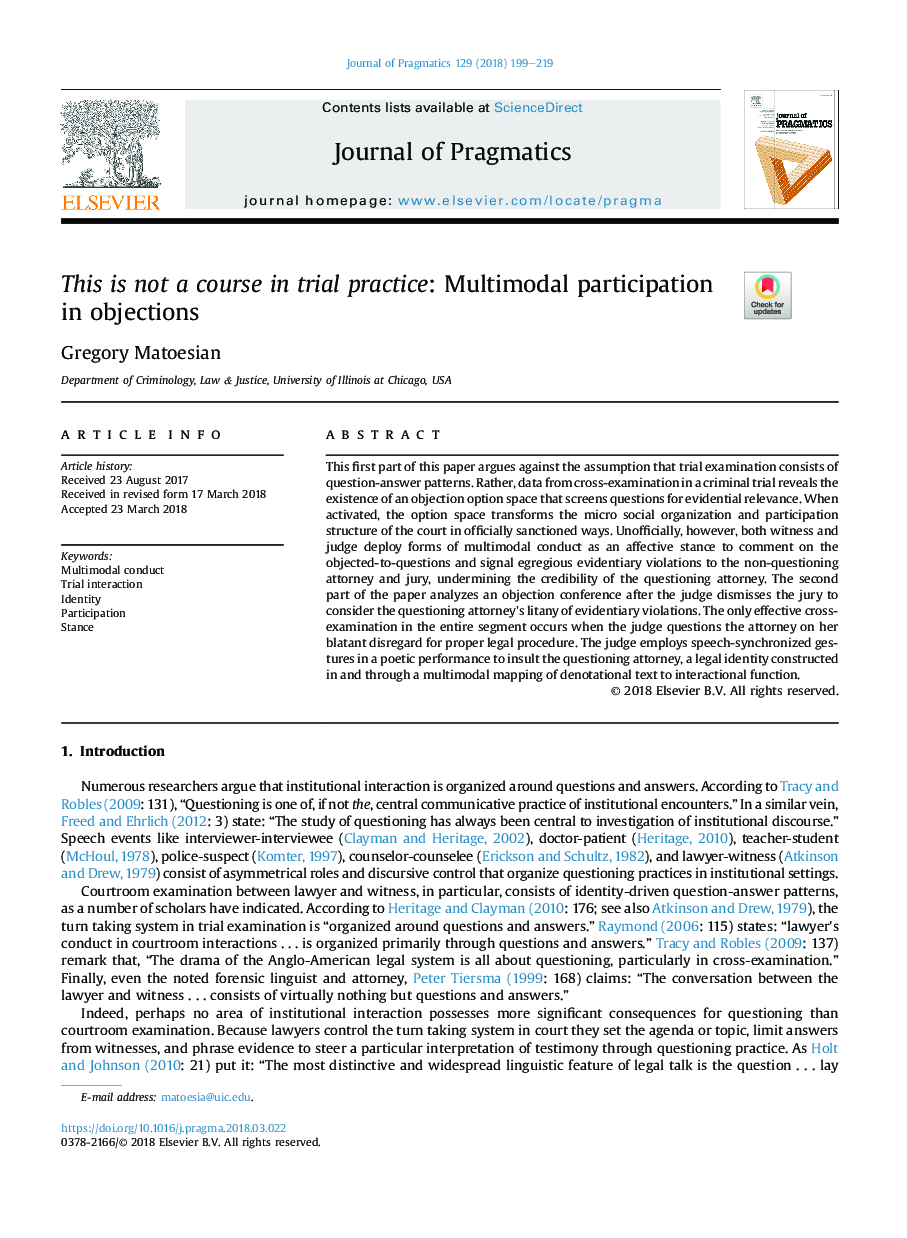| Article ID | Journal | Published Year | Pages | File Type |
|---|---|---|---|---|
| 7297361 | Journal of Pragmatics | 2018 | 21 Pages |
Abstract
This first part of this paper argues against the assumption that trial examination consists of question-answer patterns. Rather, data from cross-examination in a criminal trial reveals the existence of an objection option space that screens questions for evidential relevance. When activated, the option space transforms the micro social organization and participation structure of the court in officially sanctioned ways. Unofficially, however, both witness and judge deploy forms of multimodal conduct as an affective stance to comment on the objected-to-questions and signal egregious evidentiary violations to the non-questioning attorney and jury, undermining the credibility of the questioning attorney. The second part of the paper analyzes an objection conference after the judge dismisses the jury to consider the questioning attorney's litany of evidentiary violations. The only effective cross-examination in the entire segment occurs when the judge questions the attorney on her blatant disregard for proper legal procedure. The judge employs speech-synchronized gestures in a poetic performance to insult the questioning attorney, a legal identity constructed in and through a multimodal mapping of denotational text to interactional function.
Keywords
Related Topics
Social Sciences and Humanities
Arts and Humanities
Language and Linguistics
Authors
Gregory Matoesian,
